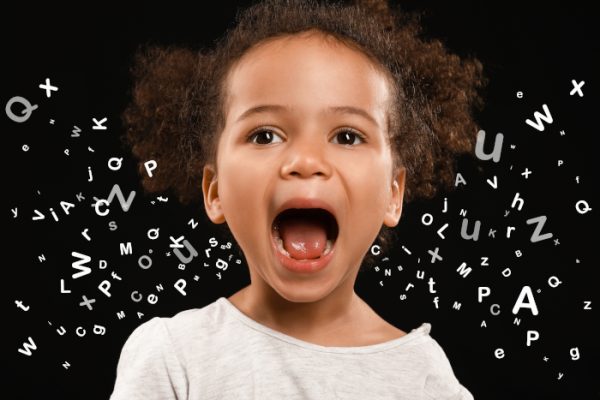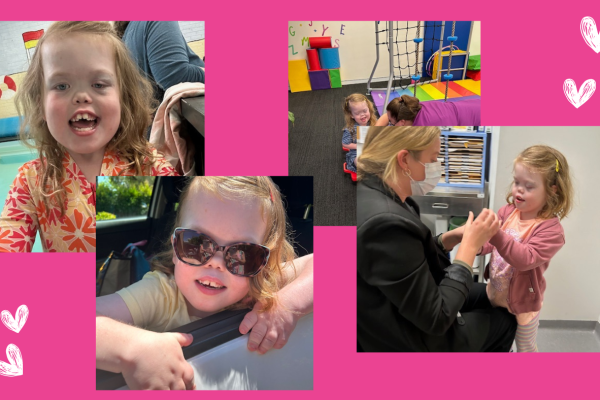
Understanding developmental language disorder
As parents we often marvel at the incredible journey our children embark on as they learn to speak. From those first babbling sounds to full sentences, oral language plays a pivotal role in every child’s development, shaping not only their ability to communicate but also their capacity to connect with others and thrive emotionally. Oral language also forms the foundation upon which future academic and employability skills are built. However, for some children, this journey may present unique challenges that require our understanding and support.
Developmental Language Disorder (DLD) is common yet lesser-known condition that affects how children learn, think about, and use language. It is characterised by difficulties in understanding and/or producing spoken language, without a known cause. Children with DLD may struggle with vocabulary, grammar, sentence structure, or the ability to express themselves clearly. These challenges can vary in severity and persist into adolescence and adulthood.
Understanding the critical role of oral language in a child’s life is essential. Language is more than just a means of communication; it is the foundation upon which learning and social connections are built. When a child experiences challenges with language development, it can affect their ability to express emotions, make friends, and engage fully in classroom activities. As parents, recognising the signs of DLD early on and seeking appropriate support, can make a world of difference to a child’s life.
In Australia, DLD is estimated to affect approximately 6-7% of children. This equates to approximately two children in every classroom, making it one of the most common developmental disorders among young Australians.
Oral language skills are crucial for a child’s development across multiple domains. From early childhood through adolescence, language proficiency
not only facilitates academic success but also plays a pivotal role in social and emotional wellbeing. Difficulties in language development can lead to frustration, social isolation, and challenges at school. Identifying and addressing these challenges early can make a profound difference in a child’s ability to reach their full potential and thrive in various aspects of life.
Parents play a crucial role in identifying potential signs of DLD in their children. Early indicators may include:
- Building vocabulary at a slower pace than peers.
- Difficulty following instructions or understanding concepts.
- Differences in forming sentences or using grammar.
- Difficulties with telling stories.
- Trouble expressing thoughts or feelings clearly, leading to potential frustrations or withdrawal.
If you suspect that your child may have DLD, it is essential not to ‘wait and see’ but rather seek professional assessment and guidance. While some language delays may resolve with time and support, persistent and significant difficulties may indicate a more complex issue that requires intervention. By working closely with speech-language pathologists, early childhood educators and teachers, parents can help their children strengthen their language skills and overcome obstacles that may hinder their academic and social success. Through targeted therapies and supportive strategies, children with DLD can learn to navigate the complexities of language more effectively.
Diagnosing DLD typically involves a multidisciplinary approach, often beginning with a comprehensive assessment by a speech-language pathologist (SLP). The assessment may include formal assessments, observation of language skills in different environments such as in play, at home or at kinder, interviews with parents and carers and teachers to gather information about the child’s communication abilities and their developmental history.
In Australia, families can access speech pathology services through various channels, including public health clinics, private practitioners, and educational settings. A referral is not needed to access private speech pathology services. Referral pathways differ across the public sector, but a local GP can provide guidance to families about the services available in their area. It is important to consult with a healthcare professional who specialises
in child language development to ensure an accurate diagnosis and appropriate intervention plan.
SUPPORTING CHILDREN WITH DLD
Early intervention is crucial for children with DLD to develop their language skills and minimise the impact on their overall development. Depending on the needs of the child, strategies may include: Speech-language pathology: Tailored therapy sessions with a SLP to target specific language goals, such as improving vocabulary, sentence structure, etc.
Educational support: Collaborating with teachers and educators to implement strategies that support language development in academic settings. Many children with DLD, thrive at school when their support needs are met; however, for some children with DLD intensive specialist supports are beneficial, such as those provided at specialist schools like Mancel College in Queensland. Mancel College, is Australia’s only school specifically tailored to meet the needs of students with language disorders, including DLD. The college’s expert team of teachers, therapists and support staff, ensures that students fulfil their learning and communication potential.
Parental involvement: Parents engaging in language-rich activities at home, such as narrating their day so that children hear and use the words associated with their everyday, singing songs, sharing nursery rhymes, reading aloud, storytelling, and having conversations with their child.
Technology-based supports: Utilising digital tools, such as Alternative and Augmentative Communication (AAC) devices and apps to support children’s abilities to communicate their thoughts, wants and ideas. These tools also offer a visual and symbolic representation of oral language which supports children’s oral language development.
For further information on DLD and supporting children’s language development, please visit Australia’s peak body, Language Disorder Australia.
By raising awareness, understanding the signs of DLD, and accessing appropriate diagnostic and therapeutic services, parents and carers can play a pivotal role in helping their children overcome language difficulties and reach their full potential. Together, we can unlock the power of oral language to enrich children’s lives and ensure they have the tools they need to succeed in a world where communication is key.
Language Disorder Australia is a trusted national network of professionals and services, providing high-quality education, support and advocacy for children and young people with Language Disorder. Visit languagedisorder.org.au or call 1300 881 763 to learn more.






